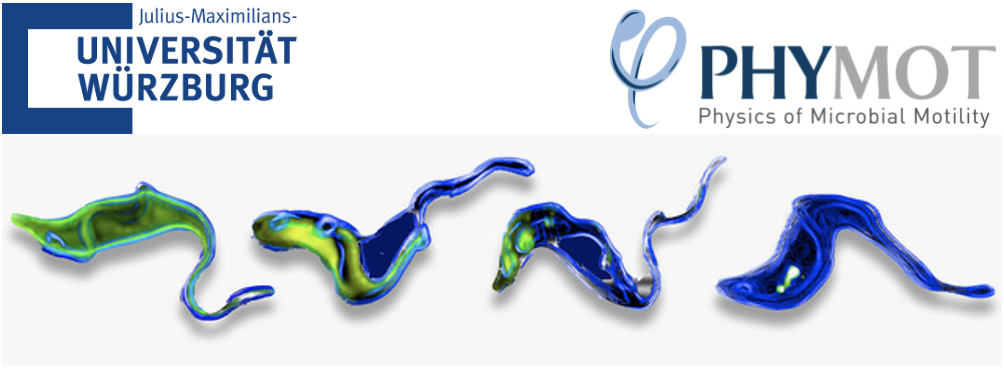Speaker
Description
When many cilia are located on the surface of a microorganism, their beating can synchronise such that their phases form metachronal waves. To understand the process of synchronisation, we study a model where each cilium is represented as a spherical particle, moving along a tilted trajectory with a position-dependent active driving force and a position-dependent internal drag coefficient. The model thus takes into account all the essential broken symmetries of the ciliary beat. We show that taking into account the near-field hydrodynamic interactions, the effective coupling between cilia can become nonreciprocal: the phase of a cilium is more strongly affected by an adjacent cilium on one side than by a cilium at the same distance in the opposite direction. As a result, synchronisation starts from a seed at the edge of a group of cilia and propagates rapidly across the system, leading to a synchronisation time that scales proportionally to the linear dimension of the system. A ciliated surface is thus characterised by three different velocities: the velocity of fluid transport, the phase velocity of metachronal waves and the group velocity of order propagation. Unlike in systems with reciprocal coupling, boundary effects are not detrimental for synchronisation, but rather help to initiate the wave.
References
[1] D. J. Hickey, R. Golestanian and A. Vilfan, arXiv:2305.01077

